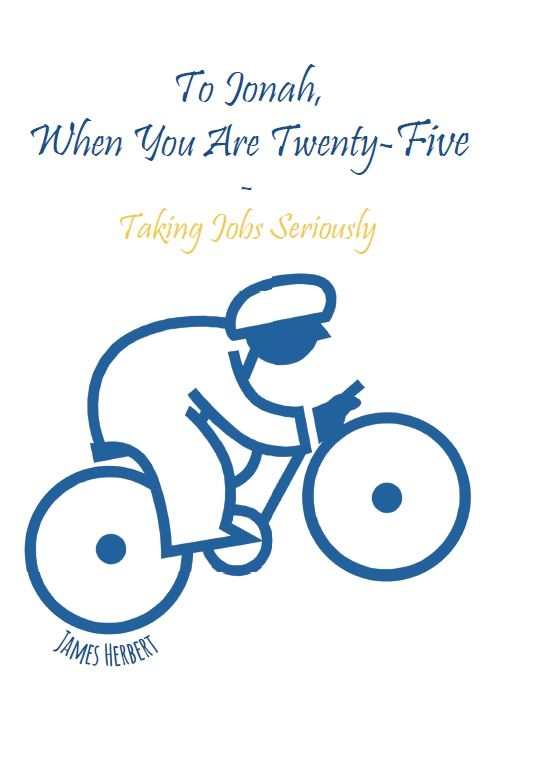To Jonah, When You Are Twenty-Five
Taking Jobs Seriously
Herbert’s honesty and humor lift what could be just another cold and calculated guide for millennials to another level.
Leaving school and entering the adult world of jobs can be intimidating and stressful. In To Jonah, When You Are Twenty-Five, James Herbert offers intelligent, honest, and friendly advice to help the next generation navigate the realities of the work world.
Written as a series of letters to the fictional Jonah, Herbert’s advice is part memoir of his own work life and part philosophy lesson. Like a grandfather doling out tough love, he warns that the world “is not a moral universe” and is unfair: “They really will kill you, if you give them a chance.” Yet, Herbert also offers hope that fulfillment can be found in the adult world. “I’d like to help fortify you,” Herbert explains, “to persuade you that though the adult world can be morally deaf, it is not immutable, that though you must be cautious, you can still be constructive, that although going to work may be deadening, it can be made worthwhile.”
The guidance offered in these letters goes beyond the usual “dress for success” and “learn proper grammar.” There are strategies for dealing with the workload, such as “do the hardest thing first” and “never open the same e-mail twice,” as well as wise advice on interacting with colleagues. For example, Herbert asserts that many problems are caused by misunderstandings, so repeating back important information to a coworker will affirm that there isn’t any miscommunication. He also advises that even people who may seem hard to get along with have strengths that should be encouraged, and recognizing and supporting those strengths can bridge gaps between people.
Herbert is not afraid to show his shortcomings alongside his accomplishments, and he admits that sometimes his suggestions may not work. For example, while he recommends projecting a willingness to cooperate with difficult coworkers, he states that some of his own former colleagues “will be getting their next signal of cooperation from me some time after Hell freezes over.” These admissions give the text a feeling of familiarity, like the advice is coming from a mentor rather than a stiff, all-knowing expert.
Herbert holds a PhD in the History of Ideas and has worked in education as a university professor and for the College Board and the National Endowment for the Humanities. He admits in one letter that he worries that, despite his background in studying Western ideas, his points may not always be clear. This is the case in some areas. Occasionally, he brings up people, organizations, and concepts that readers may not be familiar with. It can feel a bit like sitting in an upper-level college lecture after missing the previous lecture or two and scrambling to figure out who Teilhard, Hegel, and Lamarck are and what neo-Thomist philosophy is.
The advice presented here is useful for anyone looking to survive the workplace, but because this book is heavy on philosophy, it will appeal most to those who have done some study in this area. However, Herbert’s honesty and humor raise what could be just another cold and calculated guide for millennials to another level, making it easier to take in the wisdom he offers.
Reviewed by
Christine Canfield
Disclosure: This article is not an endorsement, but a review. The publisher of this book provided free copies of the book and paid a small fee to have their book reviewed by a professional reviewer. Foreword Reviews and Clarion Reviews make no guarantee that the publisher will receive a positive review. Foreword Magazine, Inc. is disclosing this in accordance with the Federal Trade Commission’s 16 CFR, Part 255.

